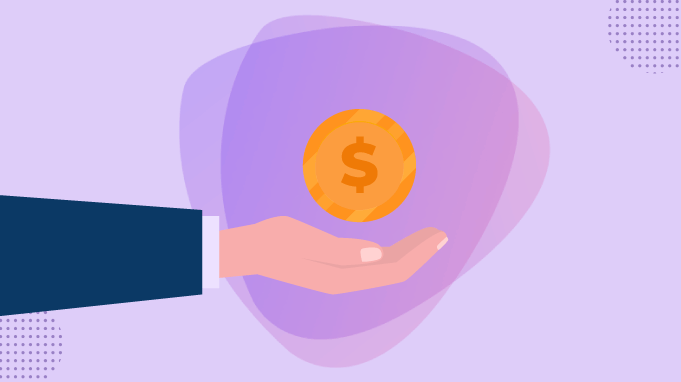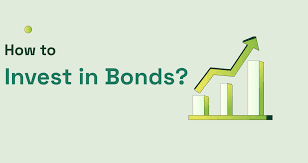Most people agree that bonds are a necessary component of a diversified investing strategy. Although they often involve less risk than stocks, they can generate income for a portfolio. If you take the appropriate strategy, you may obtain the same return—and frequently even more—as you would from savings accounts or certificates of deposit (CDs), albeit you might have to put up with some risk and bond price fluctuations.
They are so united and have a variety of titles to choose from. We will also go over the benefits and drawbacks of bond investment as well as some helpful bond purchasing tactics.
What are stocks?

With a bond, an investor and the security's issuer (a business, the government, or an agency thereof) agree that the issuer will pay the investor a certain sum of interest over a predetermined length of time. The bondholder receives a return of the bond's value from the issuer when the bond matures at the end of its tenure. A bond is a form of financial instrument and a way to finance a business.
Fixed rate and variable rate bonds are the two primary categories of bond payments. An investor may only anticipate the issuer to pay a specific amount of interest on a fixed rate bond. Less frequent floating rate bonds modify the payment amount in accordance with the prevailing interest rate. Bond interest is normally paid on a regular basis; it is typically paid quarterly or semiannually, but occasionally it is paid annually.
Unless otherwise specified in the bond's conditions, the payment on a bond is referred to as the coupon and remains constant. For instance, the coupon on a fixed rate bond may be 5%, meaning that for every $1,000 of the bond's face value—the average cost of a bond—the bondholder would get $50 annually.
Only this predetermined payment will be made to the bondholder even if the bond's price rises. The yield on the bond, which is calculated by dividing its price by its coupon, actually falls in this instance. Even if the coupon doesn't change, the bond yield increases as the price of bonds decreases.
How to trade stocks
Bonds can be bought straight from the issuer. Although there are instances where this makes sense, most regular investors use one of the following strategies to purchase and sell securities:
Purchase individual bonds using a brokerage account: Just like stocks, bonds may be purchased through the majority of brokerages. There are possibly hundreds of incentive choices for every organization, so it might be tough to sort through all the alternatives and prices vary substantially. You should also do a financial analysis of the company to ensure that payments can be made.
Buying Bond Mutual Funds and Exchange-Traded Funds (ETFs): Buying a bond mutual fund or exchange-traded fund (ETF) does not need you to make individual bond purchases. Rather, the fund or ETF provider chooses them for you and often groups them into funds according to kind or length.
Purchase bonds directly from the US Treasury: Treasury Direct is a service provided by the US federal government that enables you to purchase Treasury bonds directly. As a result, you skip middlemen and the commissions you would often have to pay a broker.
Investing in exchange-traded funds (ETFs) may be a terrific way for investors to swiftly fill in holes in their portfolio diversification. For instance, you may easily buy an ETF with such exposure if you need short-term investment grade bonds. This holds true for medium- or long-term bonds, or any term you want. You're spoiled with choice. ETFs are often inexpensive, tax-efficient, and expose investors to a variety of securities kinds, all of which contribute to diversification.
Buying and selling securities through a broker is a simple process. A broker could also require you to pay them a commission, or they might give you a "discount" by lowering the price in order to cover their overhead.
sorts of bonds
Bonds issued by companies and by the government make up the majority of bonds bought by regular investors. However, a class of assets known as mortgage-backed securities is also issued by government-sponsored organizations, like Freddie Mac and Fannie Mae.
The Treasurys
Treasury bills, for instance, are bonds issued by the federal government of the United States. They are regarded as an investment with very little risk. Treasury securities have historically had modest yields, but the federal government guarantees them with the "full faith and credit of the United States."
Bonds for savings
Capitalization bonds are another kind of bond that the federal government produces, enabling citizens to save money directly with the government. Unlike conventional government bonds, savings bonds only pay out accumulated interest upon loan repayment.
The municipal bonds
Municipal bonds, sometimes referred to as "munis," are a kind of Treasury instrument that are issued by state or local governments. The main benefit of towns and municipal funds is that the money they make is not subject to state, local, or federal taxes.
Securities of the Company
These are the securities of big domestic and international corporations. Depending on the borrower's duration and creditworthiness, you pay a wide variety of interest rates. In general, the yield on long-term bonds is higher than that of short-term bonds.
Securities secured by mortgages
Mortgage-backed securities (MBS) are a particular kind of instrument that is offered by government-sponsored enterprises like Freddie Mac and Fannie Mae. These businesses issue bonds, and the mortgages that support them provide the bonds' payments. Tens of thousands of homeowners may therefore be able to sustain an MBS by making monthly mortgage payments.
Federal government guarantees apply only to bonds issued by government agency Ginnie Mae and other entities rated by Ginnie Mae; federal government guarantees do not apply to bonds issued by Fannie and Freddie.
Benefits and drawbacks of bonds

Do bonds make wise investments?
Bonds' suitability as an investment relies on a number of variables, such as your time horizon, financial objectives, and risk tolerance. Bonds often have lower average returns than stocks since they are typically less risky. This particularly applies to US government bonds. Stated differently, decreased risk translates into lower potential returns for bonds.
That does not, however, imply that bonds are always a poor choice for investors. Bonds can make it easier to exit a turbulent stock market because they are often less volatile than equities. Bonds will assist minimize the impact of market falls on your portfolio, even though stock market declines may force you to liquidate your assets. Over time, stocks have outperformed bonds.
Naturally, the timing of an acquisition affects the performance of securities just like it does other investments. The price of your bonds will probably decrease if you purchase them right before interest rates increase. Although you will probably be able to recover your principle, depending on how long the bond is, you could have to wait for it to mature. This might take many years. However, you may also make an instant capital gain on top of the bond's income if you purchase bonds right before interest rates decline.
Do bonds increase in value when equities decline?
Although there is no law stating that this should always be the case, bond rates can occasionally increase when equities decline. When this occurs, though, it's generally because interest rates are dropping and the economy is slowing down, which makes safer assets like bonds more alluring.
A downturn in the economy frequently results in reduced interest rates. Older bonds with greater interest rates gain value when rates decline. Conversely, it is also true that bonds with smaller yields lose value when interest rates rise and become less appealing. Longer-term bonds are more susceptible to fluctuations in interest rates.
Keep in mind that equities don't necessarily decline when bonds do, or vice versa. For instance, poor-quality trash bonds frequently follow stock market trends. These securities operate differently from safer investments and carry a higher risk and possible reward.
Can a bonus cause you to lose money?

Investing in bonds carries some risk, even though they are generally less risky than stocks and other market-oriented assets. The following are some typical methods for losing money on a bonus:
Sell ahead of schedule. A number of factors influence bond prices, but the current state of interest rates is the most significant one. You might not get the full price you bought for the bond if you had to sell it for a low price. On the other hand, you will probably get the bond's face value if you hold it to maturity.
Purchase expensive games. If current interest rates decline, a bond's face value—the amount you will get at maturity—may increase in value. The bond will thus provide you higher income if you purchase it at a premium than you might elsewhere. greater bond prices are the cost associated with this greater yield, though. The bond's price approaches face value as it gets closer to maturity since there are fewer payments left on these comparatively more expensive bonds. At maturity, the bond's price is ultimately repaid at face value.
The issuer experiences insolvency or bankruptcy. The bond's value might decrease if the issuer defaults. Depending on the financial standing of the corporation, the bond may fully lose value in the event that the issuer (a company in this example) fails.
FAQs
Q. How does one begin making bond investments?
Ans. Bonds can be purchased straight from the issuer. Although in many cases this makes sense, ordinary investors usually use one of the following strategies to purchase and sell stocks: Purchase certain stocks using a brokerage account: Just like with special deals, you may purchase stocks through the majority of brokerages.
Q. After 20 years, how much is the $50 Patriot bond worth?
Ans. Every Patriot Bond sparks curiosity six times a month. The Patriot Bond will be worth at least its face value after 20 years. Consequently, in 20 years, a $50 Patriot bond that was originally bought for $25 will be worth at least $50. You can keep earning interest for up to ten years after that.
By Yash







